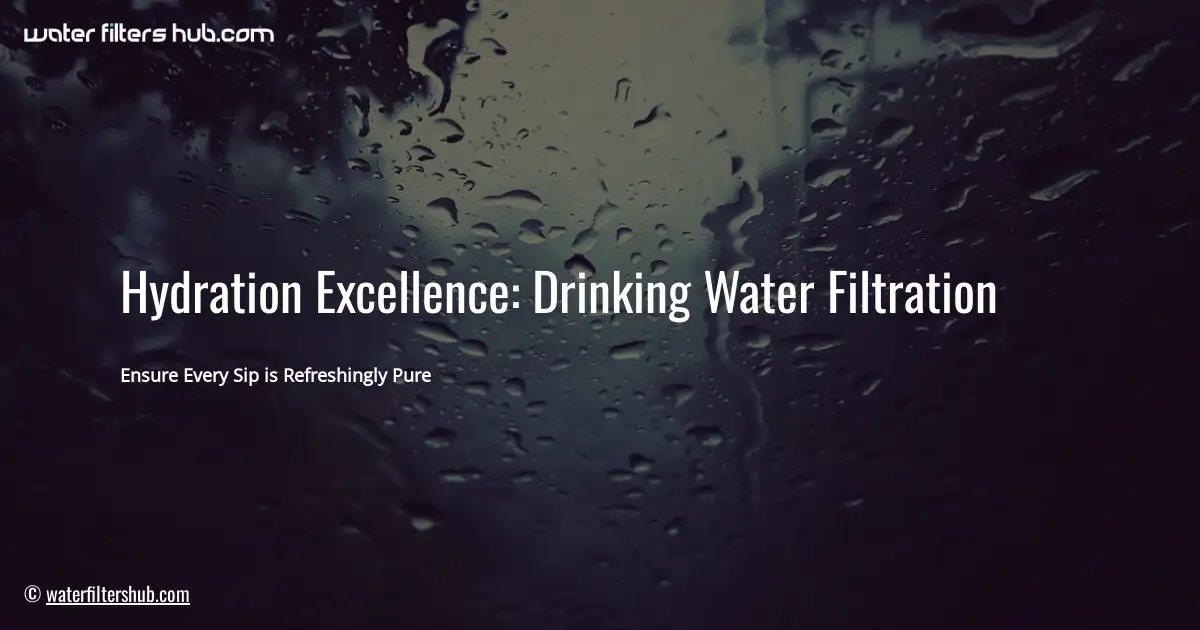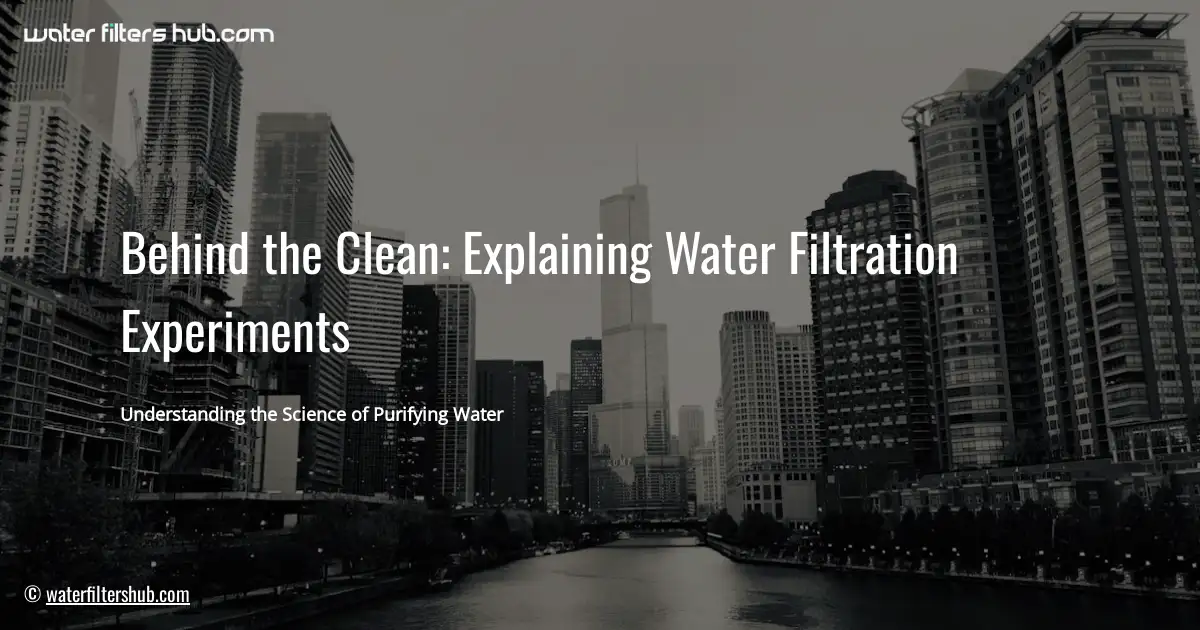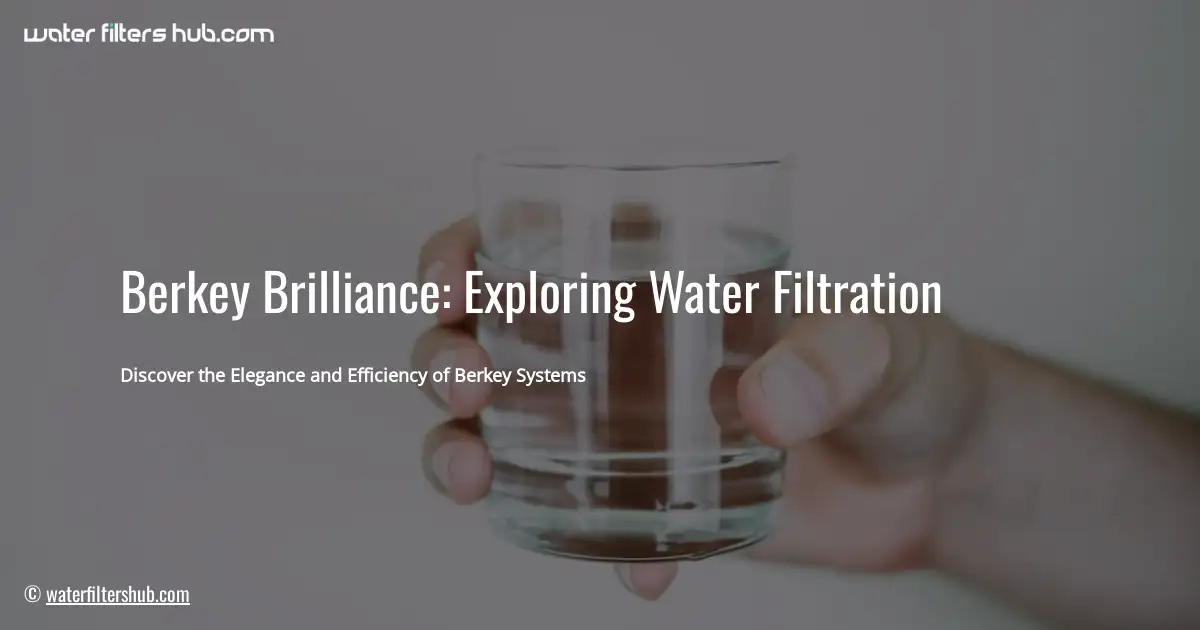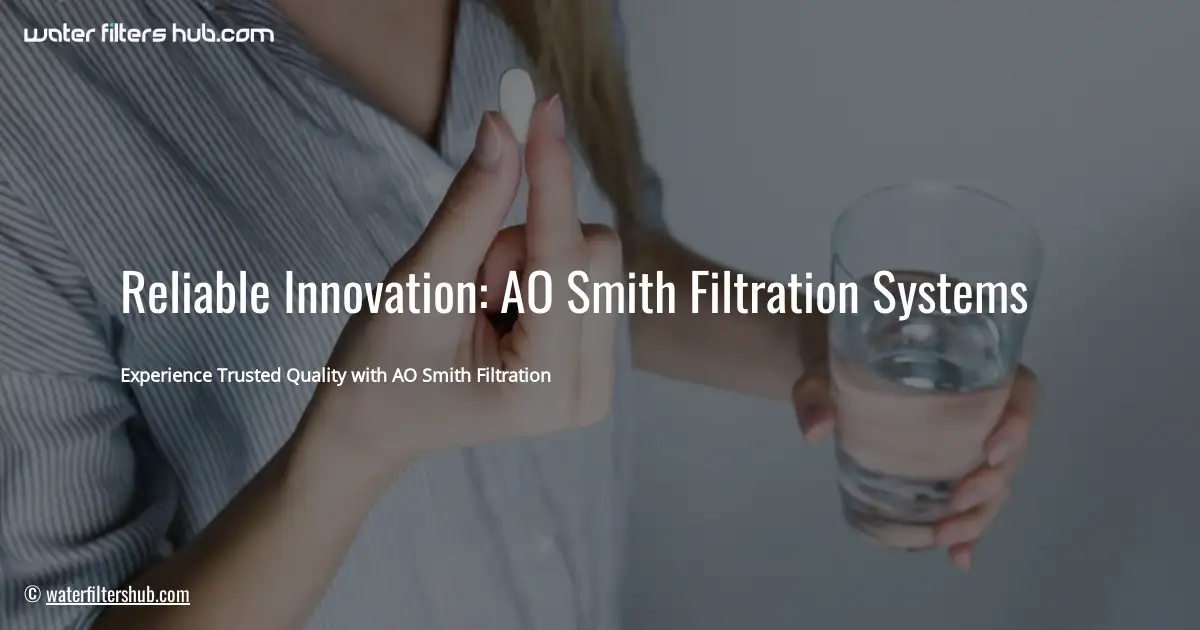Ensure Every Sip is Refreshingly Pure
I. Introduction
“Water is the elixir of life,” they say, and it’s true! Every cell in our bodies thrives on it. But what if the water we’re drinking is tainted with impurities? It’s like pouring sand into a pristine engine – it’s bound to cause problems.
That’s why drinking water filtration is so crucial. It’s like having a personal bodyguard for your H2O, protecting it from harmful contaminants like lead, chlorine, and bacteria. Imagine taking a sip of water that’s as pure as mountain spring water – that’s the magic of filtration!
TYPES OF DRINKING WATER FILTRATION SYSTEMS
Reverse osmosis (RO) systems are the most effective type of drinking water filtration system at removing contaminants. They use a semipermeable membrane to filter out impurities, including lead, chlorine, fluoride, and heavy metals. RO systems are typically more expensive than other types of filters, but they produce the purest water.
How RO Systems Work:
RO systems work by forcing water through a semipermeable membrane that has tiny pores. The pores are small enough to allow water molecules to pass through, but they block larger molecules, such as contaminants. The filtered water is then collected in a storage tank.
Benefits of RO Systems:
- Removes a wide range of contaminants
- Produces the purest water
- Improves taste and odor
- Boosts hydration and well-being
Considerations for RO Systems:
- More expensive than other types of filters
- Requires a storage tank
- May waste some water during the filtration process
Benefits of Using a Drinking Water Filtration System
Pure, filtered water not only quenches your thirst but also nourishes your body from within. When you drink clean water, your cells get the hydration they need to function optimally. This can lead to increased energy levels, improved mood, and better overall well-being. Just think of it as giving your body a refreshing spa treatment every time you take a sip! 💧✨
Choosing the Right Drinking Water Filtration System
When selecting a drinking water filtration system, it’s crucial to consider your household’s water consumption habits and the size of your family. Flow rate measures how much water the system can filter per minute, while capacity refers to the amount of water it can hold before needing to be refilled.
Imagine a thirsty family of five constantly running to the tap for a refreshing drink. A low-flow system would be like a slow-motion water fountain, leaving everyone parched. Conversely, a high-flow system would be like a raging river, overflowing and wasting water.
To ensure a steady stream of pure water for your household, determine your average water consumption and choose a system that meets or exceeds those demands. It’s like finding the perfect pair of shoes that fit your feet comfortably, allowing you to quench your thirst without any hassles.
Installing certain drinking water filtration systems requires professional expertise. These systems, like reverse osmosis or distillation systems, involve complex plumbing and electrical connections. Hiring a qualified plumber ensures proper installation, minimizing leaks and maximizing system efficiency.
Regular filter replacement and system cleaning are crucial for optimal performance. Filters trap contaminants, and over time, they become saturated and less effective. Replacing filters as per the manufacturer’s instructions prevents a buildup of impurities and maintains the system’s filtration capacity. Additionally, cleaning the system’s components, such as the membrane or sediment filter, helps remove accumulated scale and debris, ensuring optimal water flow and filtration.
DRINKING WATER FILTRATION SYSTEM ON YOUTUBE
Health Implications of Contaminated Drinking Water
Unfiltered drinking water can pose serious long-term health risks. Exposure to contaminants like lead, arsenic, and nitrates has been linked to an increased risk of:
-
Cancer: Some contaminants, such as arsenic and certain disinfection byproducts, have been classified as carcinogens.
-
Kidney stones: High levels of calcium and magnesium in drinking water can contribute to the formation of kidney stones.
-
Reproductive problems: Certain contaminants, such as lead and phthalates, can interfere with hormone function and lead to reproductive issues.
-
Neurological damage: Lead exposure, even at low levels, can damage the brain and nervous system, especially in children.
-
Cardiovascular disease: Some contaminants, such as sodium and fluoride, can increase the risk of heart disease and other cardiovascular problems.
Drinking contaminated water can have a devastating impact on our health and well-being. It’s crucial to invest in a reliable drinking water filtration system to protect ourselves and our loved ones from these long-term health risks.
Environmental Impact of Drinking Water Filtration 🌎
Using a drinking water filtration system not only purifies your water, but it also contributes to environmental sustainability. By eliminating the need for plastic water bottles, we reduce the staggering amount of plastic waste that ends up in our oceans, landfills, and ecosystems. Every time you refill your reusable water bottle, you’re not only quenching your thirst but also protecting our precious planet.
Imagine if every household in the United States switched to filtered tap water for just one year. We could save billions of plastic bottles from entering our environment, reducing our carbon footprint and safeguarding our water resources for generations to come.
Cost-Effectiveness of Drinking Water Filtration Systems
Investing in a drinking water filtration system not only safeguards your health but also saves you money in the long run. The cost of bottled water can quickly add up, especially if you drink a lot of it. A single-use plastic water bottle can cost anywhere from $1 to $2, while a gallon of filtered tap water costs a fraction of that. Over time, these savings can be substantial.
Moreover, drinking filtered water can improve your overall health, reducing the risk of waterborne illnesses and other health problems. This can lead to fewer doctor visits, hospital stays, and prescription medications, resulting in even more savings. It’s like hitting two birds with one stone: protecting your health and your wallet!
IX. Future Advancements in Drinking Water Filtration 💧
The future of drinking water filtration is brimming with exciting possibilities. Nanotechnology is revolutionizing the field, enabling the development of ultra-efficient filters that can remove even the most stubborn contaminants. These filters will be smaller, more durable, and capable of filtering water at a much faster rate.
Smart filtration systems are another game-changer. These systems use sensors to monitor water quality and automatically adjust filtration processes to ensure optimal performance. They can also provide real-time data on water usage and contaminants, empowering users to make informed decisions about their water consumption.
| Nanotechnology | Smart Filtration Systems |
|---|---|
| Smaller, more efficient filters | Monitor water quality and adjust filtration |
| Remove stubborn contaminants | Provide real-time data on water usage and contaminants |
| Faster filtration rates | Empower users to make informed decisions |
With these advancements, we can look forward to a future where every sip of water is not only clean and safe but also personalized to our individual needs.
Conclusion
Importance of Investing in a Drinking Water Filtration System
“Water is the elixir of life,” a precious resource that sustains our bodies and minds. Yet, tap water can harbor hidden contaminants that compromise its purity. Investing in a drinking water filtration system is an act of self-care, ensuring every sip is refreshingly pure.
Like a guardian angel for our health, a filtration system stands ready to neutralize harmful substances, banish unpleasant tastes and odors, and boost our hydration levels. It’s an investment in our well-being, safeguarding us from waterborne diseases and long-term health risks.
Call to Action: Ensure Every Sip is Refreshingly Pure
Don’t let contaminated water cloud your health and happiness. Embrace the power of filtration, transforming tap water into a crystal-clear source of vitality. With every sip, you’ll savor the refreshing taste of purity, knowing that you’re nurturing your body and mind.
Invest in a drinking water filtration system today. It’s a small step with a profound impact, ensuring every sip is a testament to your commitment to health and well-being. Let’s raise a glass to the transformative power of pure water! 💧✨
CHOOSING HOME WATER FILTERS & OTHER WATER TREATMENT SYSTEMS | CDC
A GUIDE TO DRINKING WATER TREATMENT TECHNOLOGIES FOR HOUSEHOLD USE
AMAZON WATER FILTRATION SYSTEM
BEST DRINKING WATER FILTRATION SYSTEM CANADA
CHARCOAL FOR WATER FILTRATION
BEST WATER FILTRATION SYSTEM FOR HOME
WATER FILTRATION EXPERIMENT






Leave a Reply